
Can Guinea Pigs Eat Asparagus? Find Out Here
Pigs can indeed eat asparagus, and it can provide a healthy addition to their diet. Asparagus is rich in essential nutrients such as vitamins A, C, and K, as well as folate and fiber. These nutrients are beneficial for a pig's overall health and well-being. However, it's important to note that asparagus should be given to pigs in moderation.
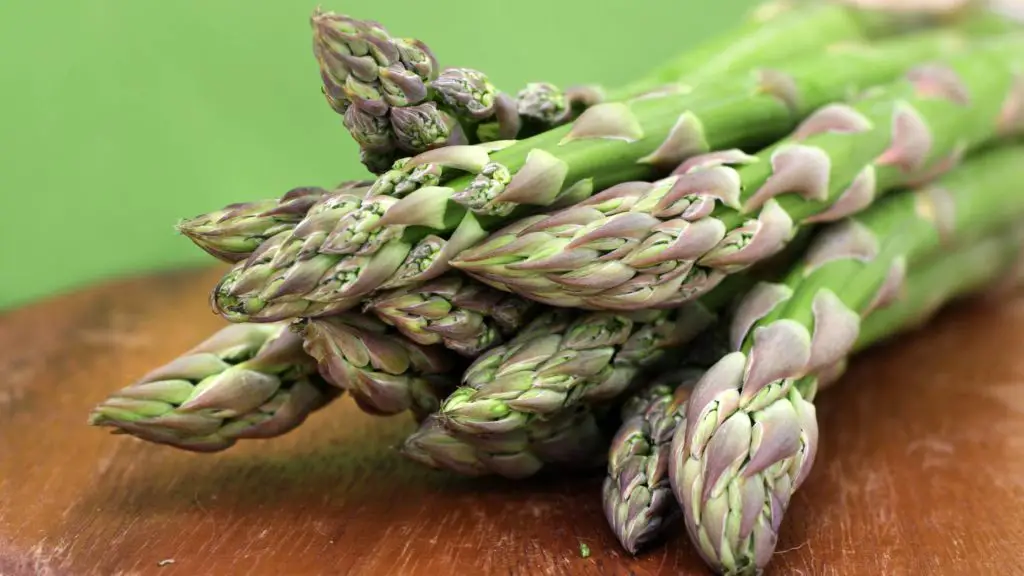
Can Guinea Pigs Eat Asparagus Benefits, Hazards, and More
Can pigs eat asparagus? Yes, pigs can eat asparagus. Asparagus belongs to the safe food to be eaten by them. They are very nutritious, and they contain a lot of vitamins and minerals that are good for them. But don't forget that you should not overfeed them with it, because there are also bad effects on their health.
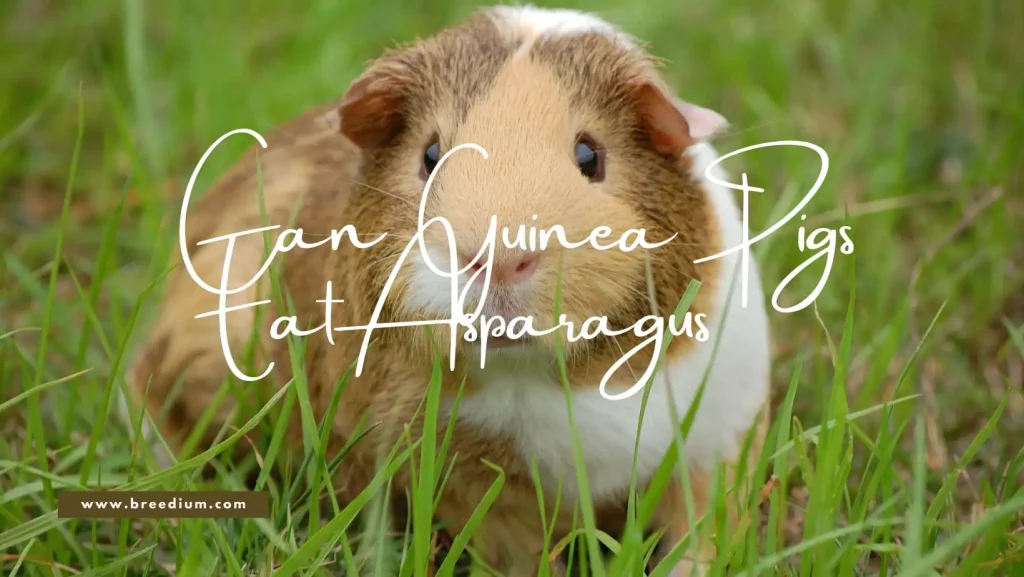
Can Guinea Pigs Eat Asparagus? Diet Considerations & Benefits
Pigs are known as omnivores, which implies they eat both animals and plants. Other than that, they are foragers that eat roots, grass, nuts, fruits, leaves, flowers, tubers, and particular kinds of large and small insects. Pigs often root in the ground while sniffing and looking for potential food. Still, farms and yards are not the same as.
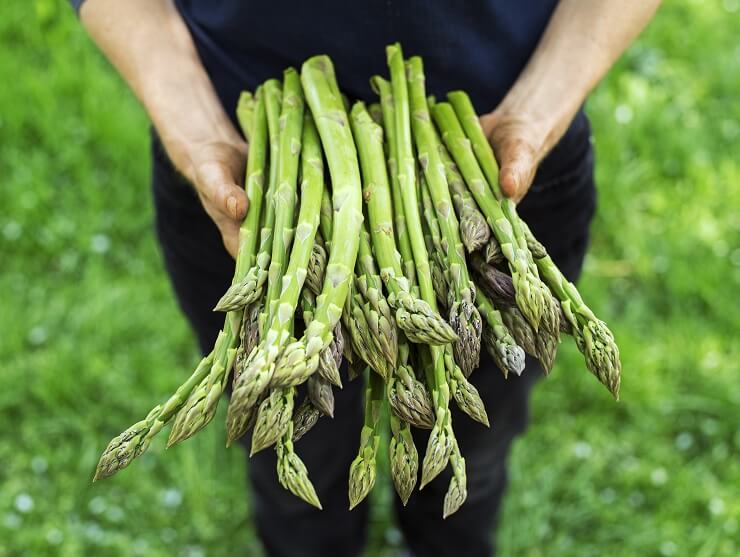
Can Guinea Pigs Eat Asparagus? We're All About Pets
When it comes to feeding asparagus to pigs, there is no definitive answer. While asparagus itself is not toxic to pigs, it should be offered in moderation. The fibrous nature of asparagus can be difficult for pigs to digest, potentially leading to gastrointestinal upset. Additionally, the high oxalate content in asparagus can be harmful if.
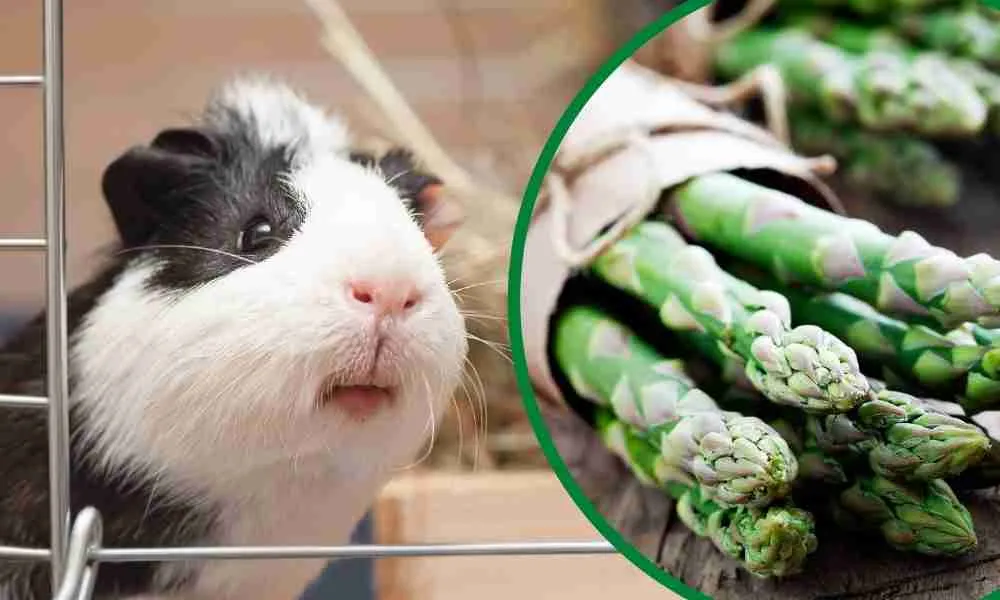
Can Guinea Pigs Eat Raw Asparagus? (10 Benefits Revealed!)
Guinea pigs can eat asparagus. It's not toxic to your furry buddy and can be a healthy addition to their diet when given in small amounts. A word of caution: Feeding too much asparagus to your guinea pig can increase their risk of bladder stones. Very small portions once or twice a week are ideal.
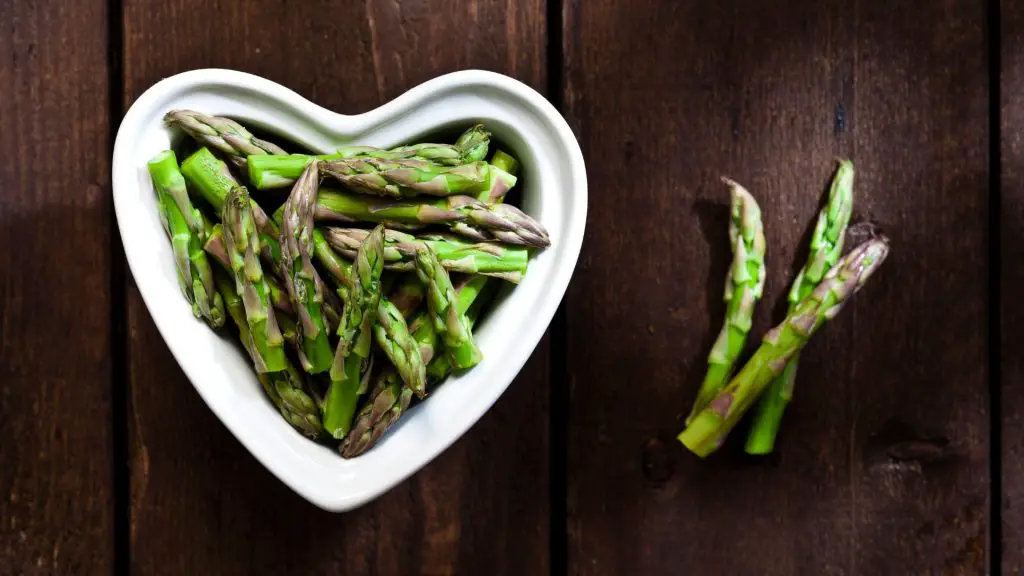
Can Guinea Pigs Eat Asparagus? (Benefits, Risks, Serving Size & More
Yes, you can eat asparagus raw, and it can be very healthy to do so. According to Shape, 1 cup of the green stuff only has 5 grams of carbs, 3 grams of both fiber and sugar, and less than 30 calories.
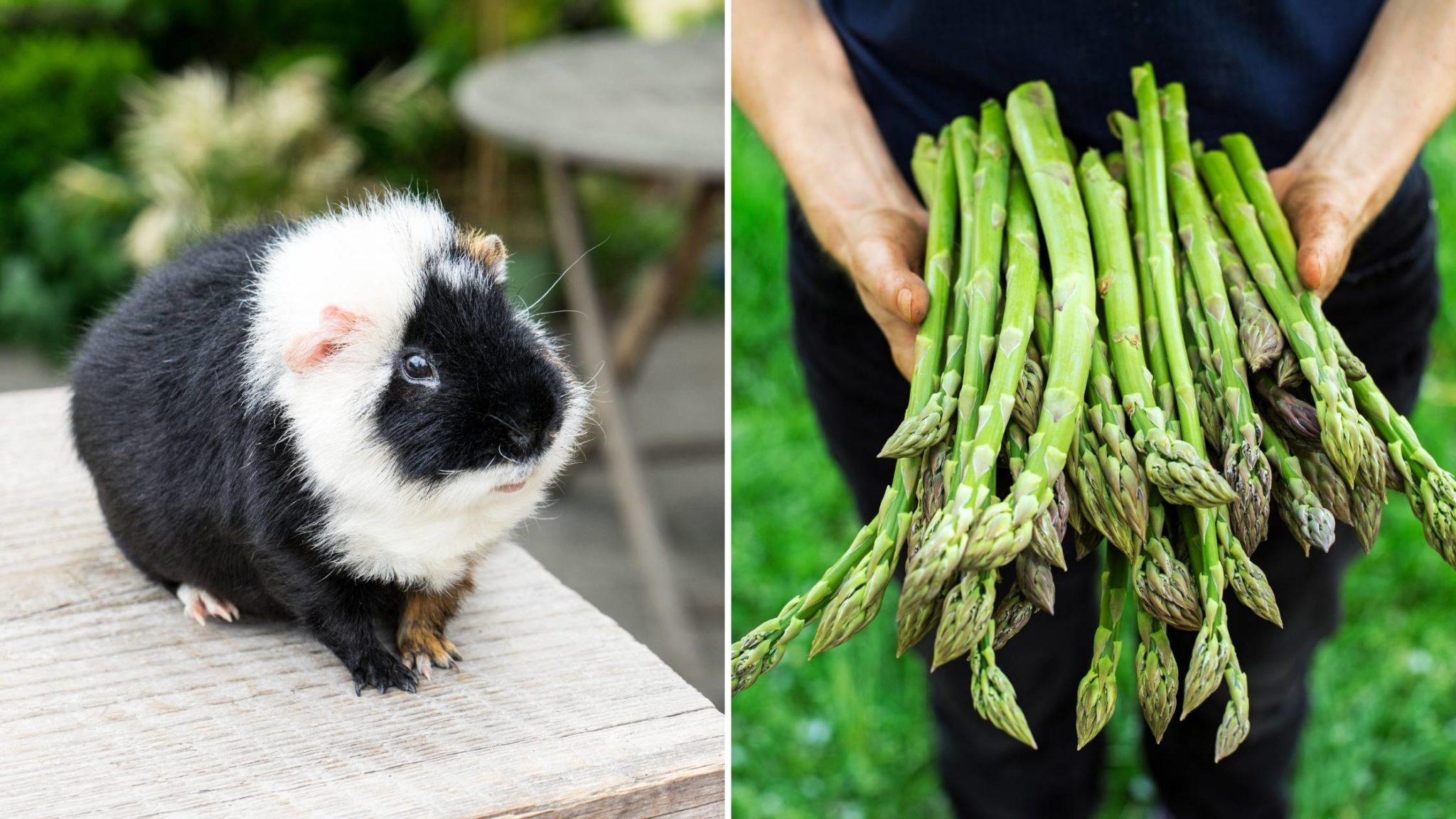
Can Guinea Pigs Eat Asparagus Benefits, Hazards, and More
Can pigs eat asparagus? Not really. Pigs have a diet mainly comprised of grains, fruits, and proteins. While small amounts of asparagus may not harm them, it's not recommended to feed it often. Their digestive system and nutritional needs mean that asparagus is not an ideal food choice for pigs. So, it's best to avoid including asparagus in.
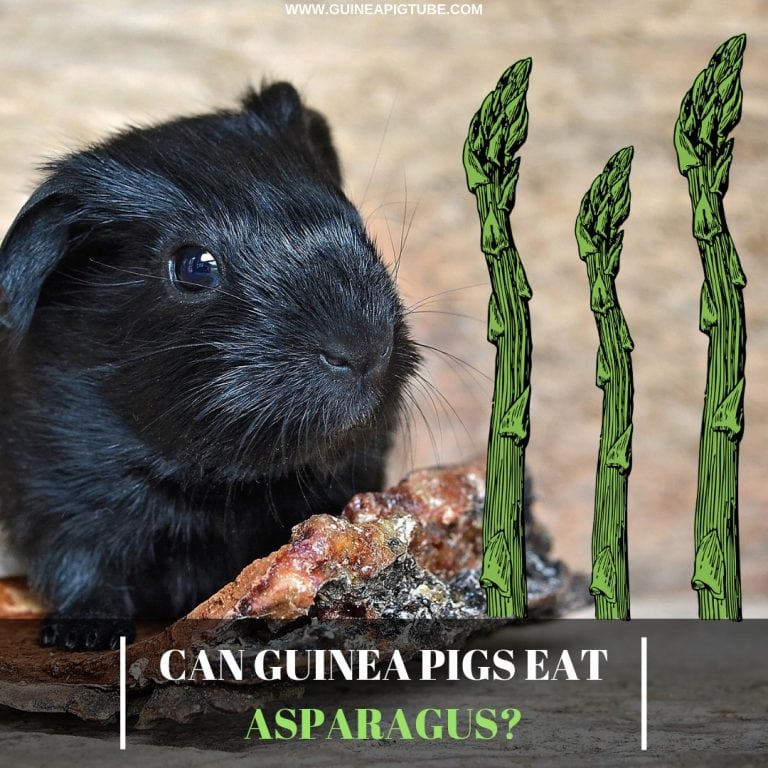
Can Guinea Pigs Eat Asparagus? Guinea Pig Tube
Pigs should eat diets low in salt and sugar. They should not eat high sodium foods or feed meant for other animals, such as dogs or cats, which have different sodium needs. It is also not recommended to feed pigs a diet high in pastries, candies, or solely fresh fruits which are all high in sugar. Pigs should have a balanced and varied diet.
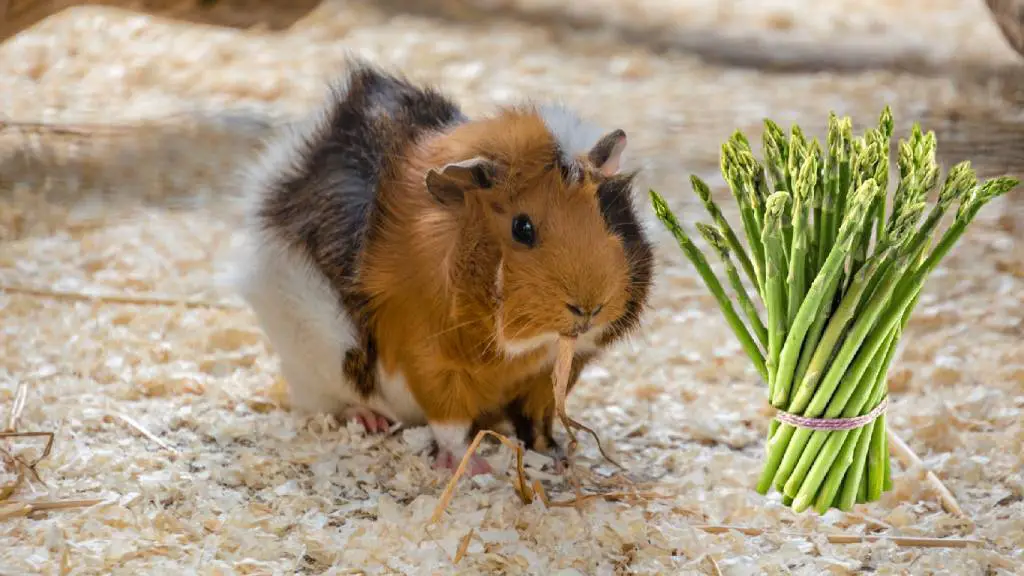
Guinea pig next to a bundle of asparagus.
Asparagus; Green, Purple, White. Avocado (No pits or skin) Bean Sprouts; Beet; Belgian Endive; Bell Pepper; Bitter Melon/Bitter Gourd; Bok Choy/Bok Choi/Pak Choy;. Pigs can pretty much eat the same foods that people can eat. Some pigs prefer to eat their veggies cooked rather than raw, and most pigs have a preferred foods that they'll eat.

Can Guinea Pigs Eat Asparagus? {My proof} yourpetswebsite
The short answer is "Yes, guinea pigs can eat asparagus." But there's a lot more to learn before you run for the fridge. Keep on reading and in just a few minutes, you'll know all about asparagus for guinea pigs. Asparagus Nutrition Stats High in fiber, low in calories, and brimming with antioxidants, asparagus is great for you.

Can Guinea Pigs Eat Asparagus Benefits, Hazards, and More
Yes, guinea pigs can eat asparagus. When added in moderation, this vegetable possesses numerous health benefits for our guinea pigs. However, it does contain a fair amount of calcium that can lead to some health issues if fed regularly. You should never make a sudden change in your guine pig's diet to introduce an exotic vegetable like asparagus.

Can Guinea Pigs Eat Asparagus? AtractivoPets
Raw potatoes are a general "no" for pigs (though they can have a little, just not much of their total intake as they can be poisonous raw, cooked are fine). Beyond that, all veggie scraps from the kitchen go to our hogs, plus bread and eggs. I can't think of any other bad foods off the top of my head. Good luck with your new pigs!

Can Pigs Eat Asparagus? What You Need to Know! Good Sidekick
Guinea pigs can eat asparagus, but never give too much asparagus to your pet. In fact, asparagus is quite healthy for your guinea pig since it contains essential nutrients such as vitamin C and phosphorous. You should only feed asparagus to your guinea pig as an occasional treat.

Can Guinea Pigs Eat Asparagus? Guinea Piggles
Can Pigs Eat Asparagus? Yes, pigs can asparagus, but only the stalk. The berries of the plant are toxic and should not be fed to the pigs. You can feed them cooked or uncooked asparagus, but only in moderation. This is due to the high amount of fiber in the plant, which consumed in large amounts can cause digestive issues for the pigs..
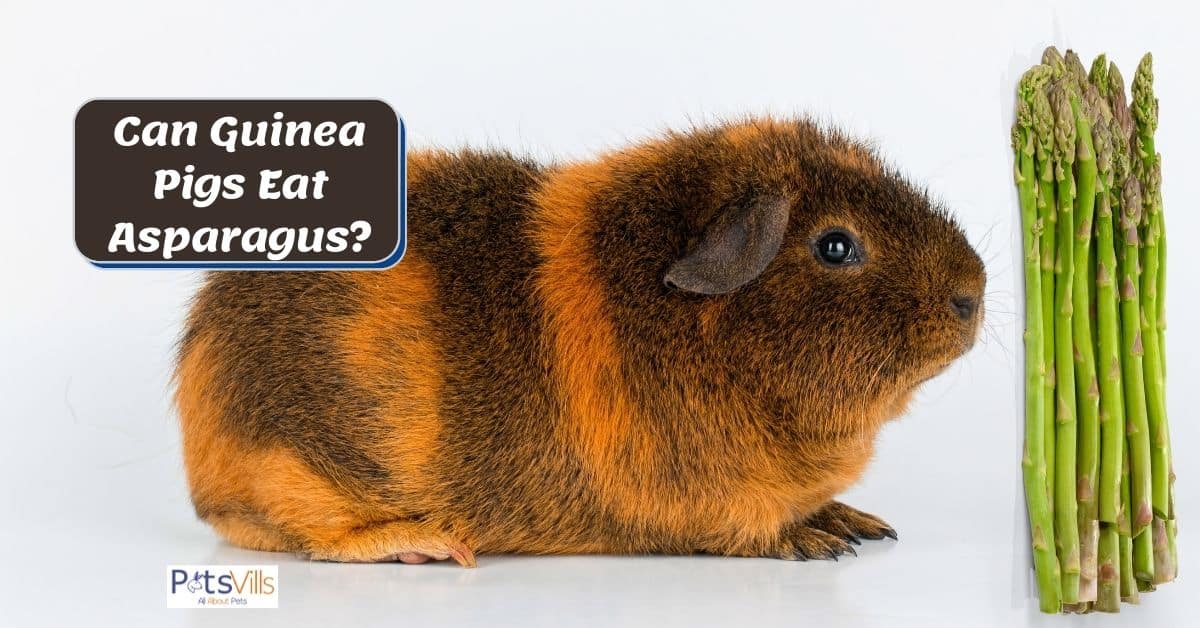
Can Guinea Pigs Eat Asparagus? (Benefits, Risks, and More)
Healthy and good vegetables for pigs include squash, sweet potatoes, corn, leafy greens, green beans, asparagus, artichoke, carrots, and peppers. Many vegetables are healthy for pigs and provide the needed nutrients they need. Vegetables are good for pigs as their primary diet; only a few vegetables need to be restricted.

Can Guinea Pigs Eat Asparagus? 17 Things To Know MRP
This brings us to the question: can pigs eat asparagus? Nutritional Overview of Asparagus. Asparagus is a nutrient-dense vegetable that has been a part of the human diet for centuries. It is low in calories but rich in essential vitamins, minerals, and antioxidants. Basic Nutrients: Asparagus contains dietary fiber, which aids in digestion. It.